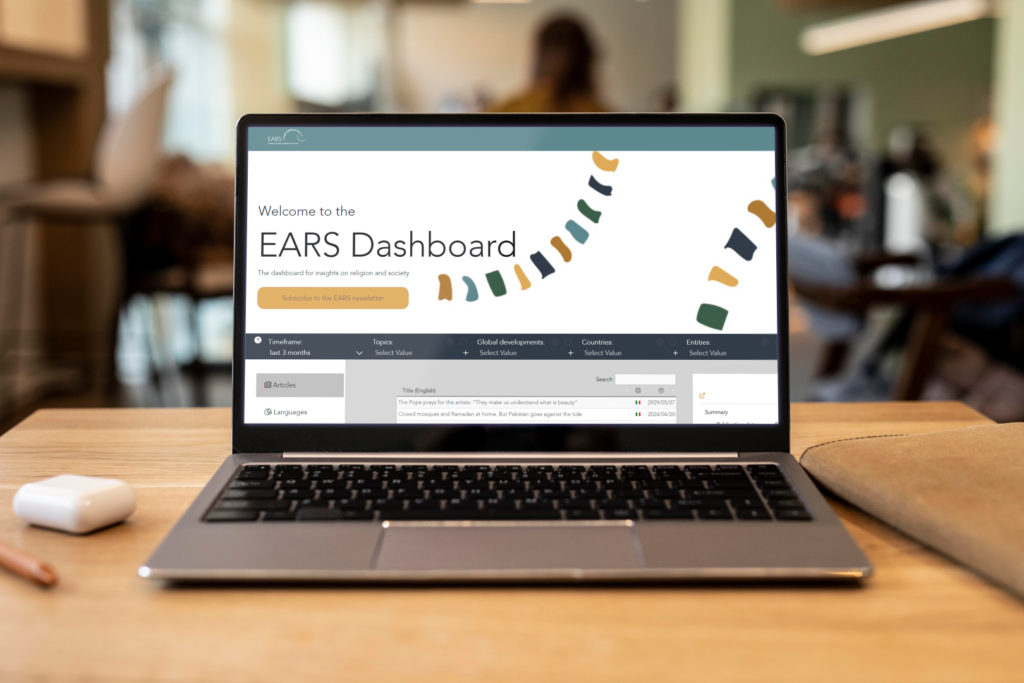Introduction to the EARS dashboard
About EARS
EARS, the European Academy on Religion and Society, is a European network of Departments and/or Faculties of Theology and/or Religious Studies. Its goal is to make academic knowledge in the domain of religion available to society at large. EARS is aware and convinced of the importance of such knowledge in our modern society. If you want to learn more, please go to About EARS.
The EARS dashboard
Religion has a tremendous impact on our daily lives. It explains a lot of our actions, reactions, and societal behavior. This dashboard aims to provide insights and information on the effect of religion on daily life.
A team of international analysts works on this dashboard. We strive to add a few hundred articles per month. We do not pretend to be complete, and we strive to inform, instead of have our own opinion. The dashboard allows you to select your preferred timeline, topics, global developments, countries, and entities. This allows you to find exactly what you’re looking for.
The various graphs in the dashboard allow you to gain insights into the development of trends over time, the popularity of keywords in a certain time period, the overlap between different topics, and much more.
We hope you enjoy our work. And please note: the copyrights of all sources are owned by the source, not by us.
Learn more about our dashboard
Who is responsible for the dashboard?
EARS is responsible for the dashboard and to maintain the database. The copyrights of all sources are owned by the source and not by EARS.
Contact with EARS
If you would like to comment on something or have a question for EARS, please contact us.
Application of the dashboard
The dashboard shows data and tendencies in the field of religion, as they appear in leading journals and magazines in several European countries. EARS intends to create an overview of European countries. However, this will never be an exhaustive overview of sources and articles.
Use of the dashboard
You can select on topic, timeframe, global developments, entities, and country. The panels on the left allow you to view graphs and more information on your selected scope.
Analysis process
A team of international analysts, students and PhD students from European universities in the field of theology and religious studies conducts the research. The research themes for the dashboard are determined by the editorial team of EARS. These themes can be found and selected in the dashboard under ‘topics’. If an analyst finds a new article, they will write a summary and enter this with a link to the original article in the database.
How does the methodology affect how information is displayed?
EARS does not intend to conduct qualitative research. EARS intends to show tendencies, themes, and emotions and creates graphs and overviews of how the field of religion and subsequent themes are changing and moving over time.
Could an imbalance between topics occur?
The large number of articles submitted will show tendencies and changing perspectives in society. EARS identifies themes and conducts news research on these themes. The research of articles is not exhaustive. An imbalance between topics can occur. This will influence the results of the news articles that were found and submitted to the database.
